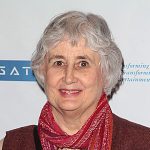
Who is Dr. Eduard Uzumeckis? Tell us about your work
I am a disabled Veteran of the Vietnam War, having served in Vietnam from 1969 to 1970. I received my MFA in Art from Arizona State University in 1982. I taught photography, digital media, and digital storytelling for more than 25 years. I am the former Director of the Dana Atchley Center for Digital Storytelling at Yavapai College in Sedona Arizona.
Currently I volunteer as a Veterans Service Officer (VSO) for the Vietnam Veterans of America. Veterans of all eras, and their dependents can apply for and receive Veterans benefits for which they are eligible from the Veterans Administration (VA). In this capacity my role is to serve as an advocate for Veterans seeking benefits, especially disability benefits, from the VA. I am authorized by the Office of the General Council of the VA (OGC) to submit benefits claims, file appeals of negative decisions, and represent Veterans and their dependents before the Board of Veterans Appeals if necessary. In other words, I lead Veterans through the labyrinth that is the Veterans Administration claims process so that they receive the benefits they are entitled to.
How/Why did you get into this line of work?
I started doing this work because I realized that so many Veterans were unaware of the benefits they deserved or experienced a negative response from the Veterans Administration and had given up trying to receive the benefits they had rightfully earned. The process of applying for VA Benefits involves a maze of laws, regulations, policies, and a particular type of language that can be especially confusing to a Veteran applying for benefits on their own. I recognized that there was a need for more individuals who understood VA policies and how they were applied throughout the process of getting benefits, both disability and health, especially where I lived in Sedona and Northern Arizona. In order to fill that need I started working as a Post Service Officer with the VFW. Eventually, I realized I wanted to become more involved in the claims process. In order to realize that goal I completed several hundred hours of training in VA law, policy, and the claims process in order to receive my accreditation as a VSO
What is most rewarding about it; what makes it all worthwhile?
The rewarding aspect of this job is seeing a 93-year-old homeless WWII veteran receive healthcare, disability compensation, and a place to live because I responded to a call from the police asking what to do with him. It is seeing a Vietnam Vet receive 100% disability compensation and his wife receive medical coverage, because of his disability rating, for the first time in 10 years. It is helping combat veterans receive disability compensation for both the physical and mental health wounds resulting from their wartime service.
What makes this job worthwhile is the knowledge that I am doing whatever I can for my fellow brothers and sisters in arm so that no veteran is left behind.
What are the most critical problems faced?
First, it is the lack of knowledge on the part of the Veteran to which benefits they are eligible for, what evidence they need to submit to support their case, the language they need to use when filing a claim, and finally keeping copies of all correspondence to and from the Veterans Administration.
Secondly, the knowledge of ever changing VA laws and policies so that those laws and policies can be applied properly when a Veteran submits a disability claim or requests benefits to which they are entitled.
Finally, just having Veterans and their families know that I am available to serve them.
Has there been a defining moment your life that made you decide to take the direction that you did?
I watched my father, a WWII combat veteran, who spent 106 days in a German Prison Camp fight the VA for disability benefits he earned as a result of his wartime service. It wasn’t until he was around 75 that he met with a Service Officer, who assisted him in navigating the VA claims system, that he was finally receiving 100% disability compensation. My father’s own struggles paved the way for me to do the work I do today.
If we’re sitting here a year from now celebrating what a great year it’s been for you, what would be your “dream” achievement?
A year from now my dream achievement would be having a book based upon my dissertation in the hands of a publisher and preparing for its release. The intense nature of working with veterans issues and the time involved makes reaching this achievement very challenging.
How do you keep a healthy work/life balance?
What I do is volunteer work, so trying to maintain a healthy work/life balance becomes difficult. The demands of the different Veteran’s organizations I am associated with can easily consume all my time. In order to prevent that from happening I try to remember that both my physical and mental health are dependent upon the amount of time I devote to my own projects and goals. So I set aside time to read, workout, and engage in the creative activities of photography, digital storytelling, and writing.
About Pacifica & You
What brought you to Pacifica?
A friend introduced me to Pacifica during the last Digital Storytelling Workshop I led at Yavapai College. After reading the description of the Mythological Studies Program, I realized there was a direct correlation to the work I was doing with people through digital storytelling. I saw the program at Pacifica as a way gain a greater understanding of the transformation that took place in the lives of the participants in my workshops.
How has your Pacifica degree served you professionally in your occupation or your vocation?
My studies, especially the research associated with my dissertation, provided an expanded depth of knowledge regarding both the collective and individual experience of Veterans. This new knowledge is especially important in addressing the issues of PTSD, suicide, and the role moral injury plays in the lives of veterans after they have completed their enlistment. This awareness allows me to more effectively determine the issues a veteran is having and through that knowledge offer the appropriate help and path to obtain the benefits they deserve.
How has your degree served you personally?
The four plus years I spent at Pacifica became an avenue for me to obtain an in-depth understanding regarding who I was as a human being and how my perception of my self was impacted by my military service during the Vietnam War. Like a newly opening blossom, many subjects provided new petals of context for me to hold my military experience. In the end as I completed my work at Pacifica I left with a sense that I had finally come home from the war.



